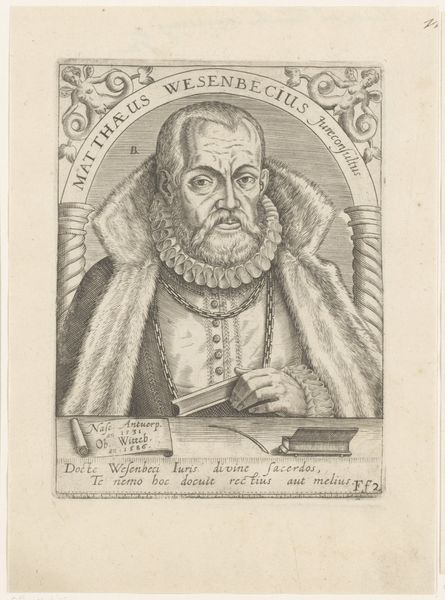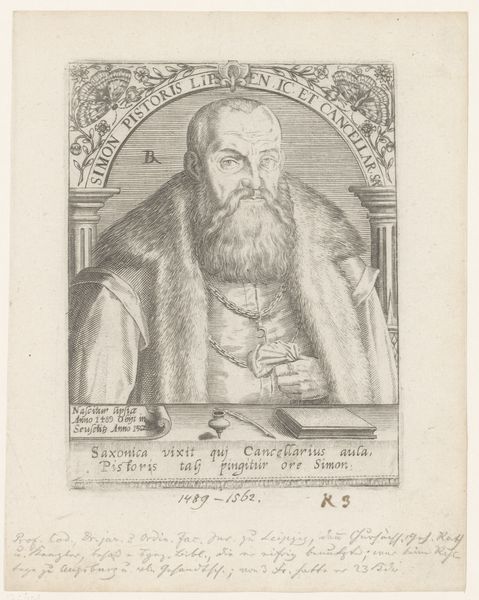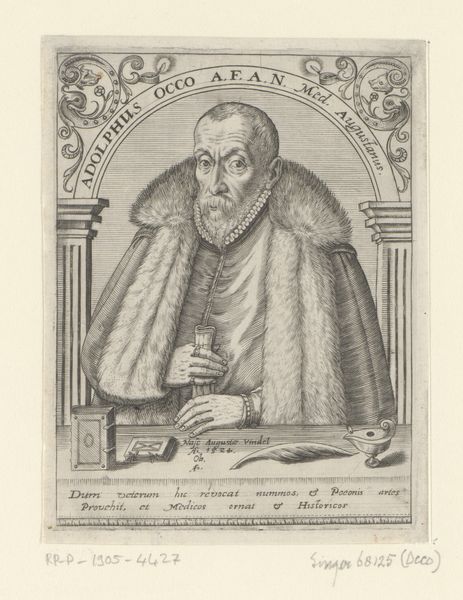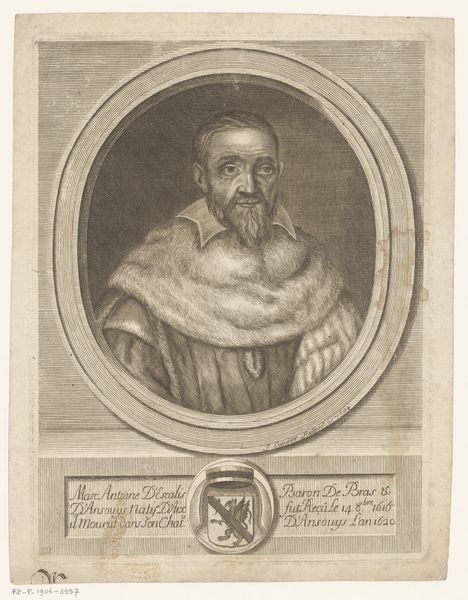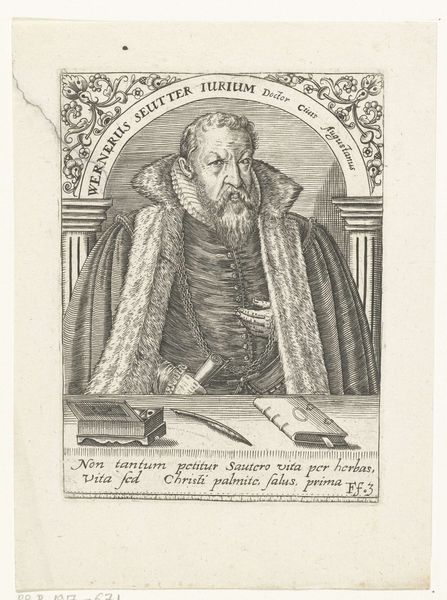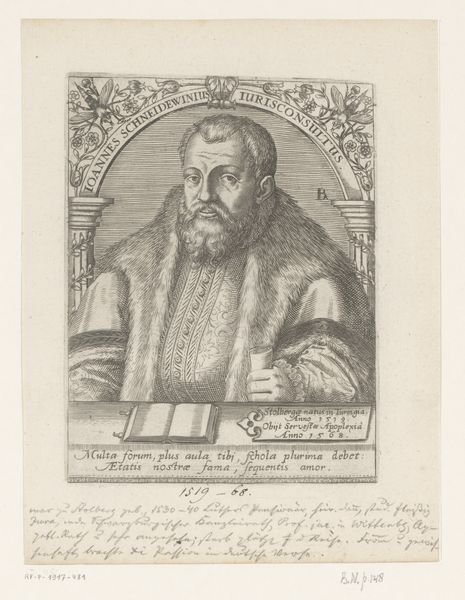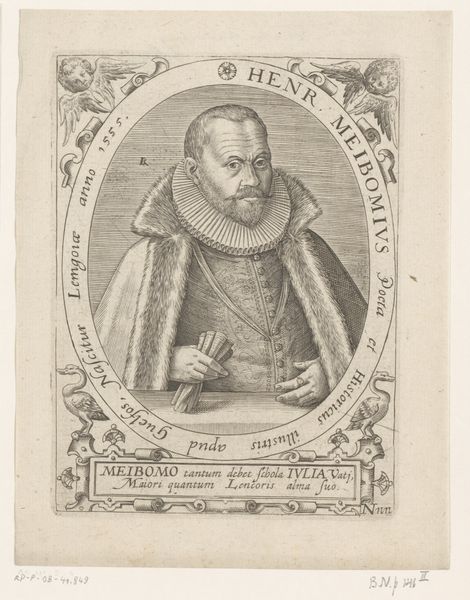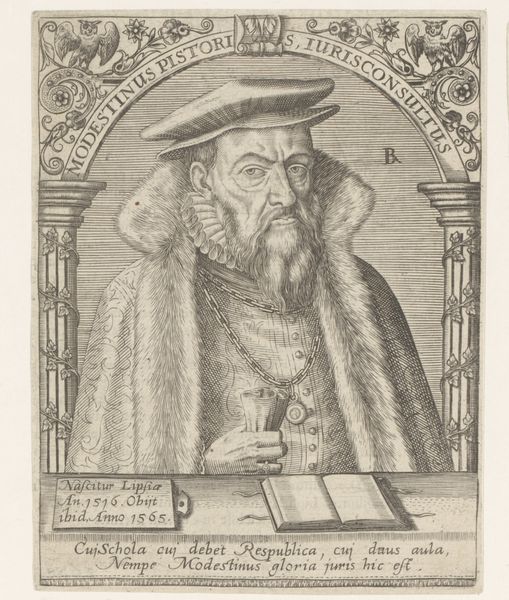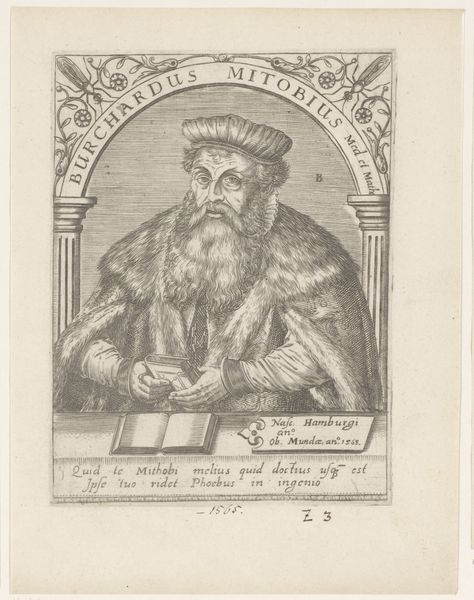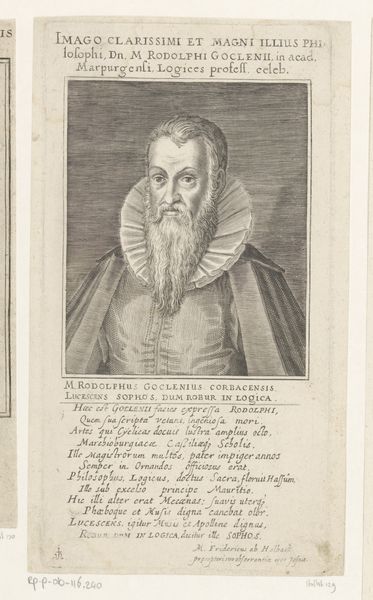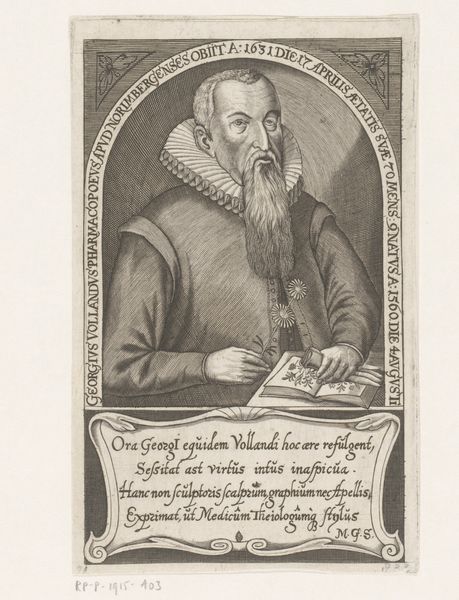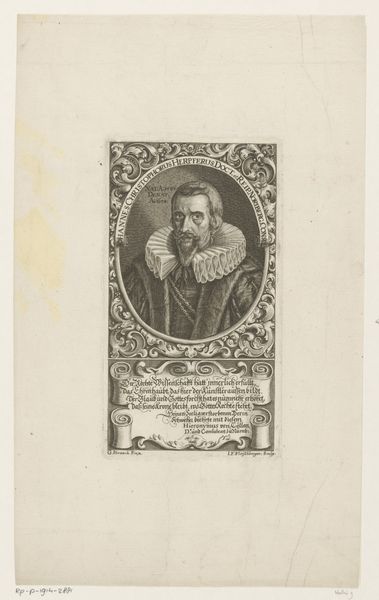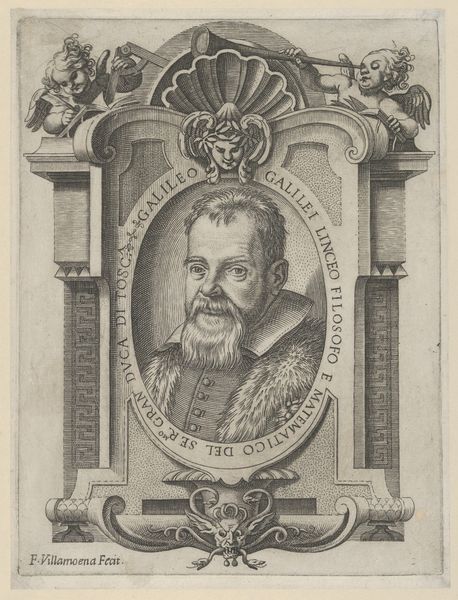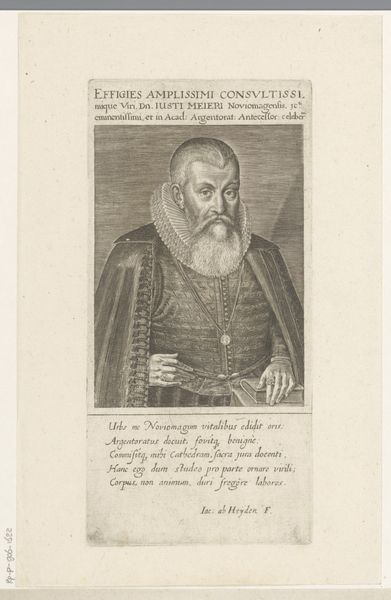
drawing, print, paper, engraving
#
portrait
#
drawing
#
self-portrait
# print
#
book
#
paper
#
11_renaissance
#
northern-renaissance
#
engraving
Dimensions: height 143 mm, width 108 mm
Copyright: Rijks Museum: Open Domain
Editor: So, this is Robert Boissard's "Portrait of Michael Teuber," made between 1597 and 1599. It's an engraving, which I always find fascinating for its level of detail. There's something so stoic and intellectual about his expression, but also very formal. How do you interpret this work? Curator: It's fascinating how Boissard uses familiar portraiture conventions to build a complex image of Teuber. Consider the placement of the angels: how do they contrast with Teuber’s fur collar and stoic pose? He holds what seems to be an ink pot: the same dark shade used in the Latin script at the bottom, “Neither nature nor fortune has denied me anything; Both have cherished me with their gifts." Doesn't this make you think about Teuber's view of the humanist project itself? Editor: That's interesting. I hadn't connected the angels to the earthly possessions and achievements represented in the rest of the engraving. Is the symmetry itself also symbolic? Curator: The symmetry certainly emphasizes order and balance, key values of the Renaissance. Yet, note the somewhat flattened perspective and detailed rendering of textures; These techniques are designed to ground the man in the here-and-now. Are they not saying something about Teuber's individual virtue in this life, alongside any implication of divine blessing? Editor: I see what you mean. So it's almost as if Boissard is trying to create an image of Teuber that speaks to both his worldly achievements and some kind of spiritual favor. It definitely gives the portrait more layers. Curator: Precisely. It illustrates how portraits functioned then; a celebration of human achievement balanced with reverence, designed to echo and shape cultural memory. Editor: That makes so much more sense now, seeing how the image and text work together. Thanks for helping me unlock those symbolic layers.
Comments
No comments
Be the first to comment and join the conversation on the ultimate creative platform.
